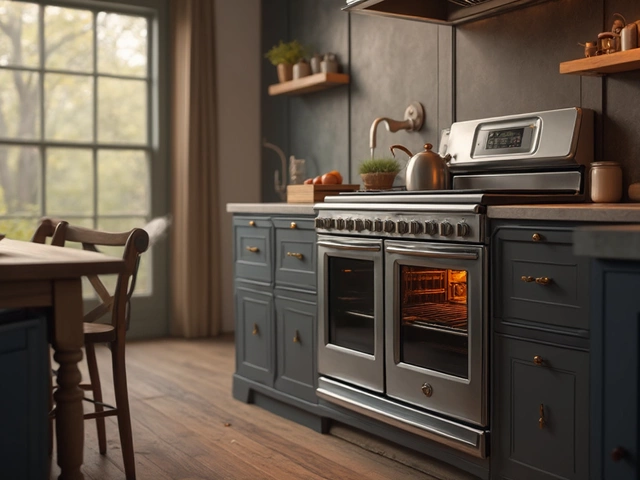When winter hits, a comfy home feels like a lifesaver. But heating can also eat up your bills fast. The good news is you don’t have to guess what works best. Below you’ll find straight‑forward advice for heat pumps, boilers, water heaters, and more. Use it to keep the house warm without blowing your budget.
First, look at how your house loses heat. Check windows for drafts, make sure insulation is solid, and note which rooms feel colder. Simple fixes like sealing gaps or adding a door sweep can cut the load on any heating system. Knowing where the problem starts helps you choose the right solution.
Heat pumps move heat instead of creating it, so they use less electricity. In the UK they work well even when it’s chilly, especially ground‑source models that tap the earth’s steady temperature. Air‑source units are easier to install but might need a backup when the frost gets deep. Regular maintenance—cleaning the outdoor coil and checking the refrigerant—keeps them efficient for years.
Both types can last 15‑20 years if you service them yearly. The biggest enemies are clogged filters and dirty fans, which make the unit work harder and raise your bill. A quick filter swap each spring and a leaf‑free outdoor space are all it takes to protect your investment.
Boilers are the workhorse of many homes, but they need a check‑up at least once a year. Look for warning signs: odd noises, slow hot‑water recovery, or a sudden rise in fuel use. Flushing the system and testing the pressure valve are simple tasks you can do yourself, but a certified engineer should handle gas‑related work.
Water heaters have a similar story. Sediment builds up at the bottom of the tank, reducing heating efficiency and causing noisy rumbling. Flushing the tank every 12‑18 months removes the grit and extends the heater’s life. If the water takes longer to heat or you get hot spots, it’s time to inspect the heating element or think about a replacement.
DIY fixes are fine for filter changes, thermostat tweaks, or resetting a tripped breaker. When you spot a leak, a strange smell, or a loss of pressure, call a professional. Trying to fix a gas leak or a cracked boiler shell yourself can be dangerous.
All the tips above are just a taste of what’s available on our home heating solutions tag. We’ve gathered guides on heat‑pump lifespan, boiler efficiency, water‑heater maintenance, and more. Bookmark the page, click the articles that match your problem, and get the step‑by‑step help you need.
Staying warm doesn’t have to be a gamble. Pick the right system, keep it serviced, and know when to bring in an expert. With the right knowledge, you’ll enjoy a cosy home and lower bills all season long.

Discover what causes heat pumps to break down, the warning signs, and how to keep yours running smoothly with practical tips for any homeowner.

Boilers, integral to any home heating system, don't last forever. Understanding their lifespan can help you plan timely maintenance and replacements to ensure efficient heating. In this article, we explore how long you can expect your boiler to serve you, what affects its longevity, and how regular care can make a difference. By understanding these aspects, homeowners can make informed decisions regarding their heating needs and avoid unexpected failures.

Plumbers can install extractor fan ductwork, but only electricians can legally wire them. Learn who to call for safe, code-compliant installation and how to avoid costly mistakes.

Choosing an oven that stands the test of time goes beyond looks and price. This article delves into which oven brands are celebrated for their durability. We'll explore how build quality, materials, and innovative technologies play a role in longevity. Plus, you’ll get insider tips on maintaining your oven for years to come. Discover how to make a smart choice today that benefits you tomorrow.

Choosing a cooker that stands the test of time can be daunting amid a sea of brands promising longevity. This article delves into which brands have stood out for their durability and reliability. By exploring user experiences and industry insights, it aims to guide you in the right direction. Discover how some brands maintain their reputation for endurance and what to consider when selecting your next appliance.

A malfunctioning boiler can be a real nuisance, especially during the cold months. Understanding whether a broken boiler constitutes an emergency is crucial. This article provides insights into when to prioritize boiler repairs, potential risks associated with delayed attention, and essential DIY tips to consider before professional help arrives. Dive into valuable advice on maintaining your heating system efficiently.